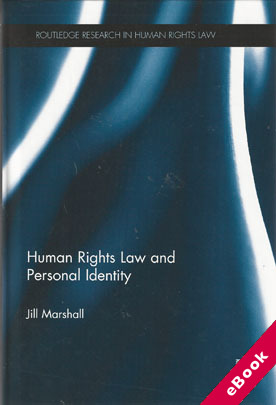
The device(s) you use to access the eBook content must be authorized with an Adobe ID before you download the product otherwise it will fail to register correctly.
For further information see https://www.wildy.com/ebook-formats
Once the order is confirmed an automated e-mail will be sent to you to allow you to download the eBook.
All eBooks are supplied firm sale and cannot be returned. If you believe there is a fault with your eBook then contact us on ebooks@wildy.com and we will help in resolving the issue. This does not affect your statutory rights.
This book explores the development and meaning of a right to personal identity which now exists in human rights law. The book questions how a person's personal identity is reflected in human rights law, and what exactly this personal identity is which is accorded legal protection under human rights law.
The book considers the issue from a theoretical as well as a a jurisprudential perspective, examining the provisions related the burgeoning right to personal identity contained in the UDHR, ICCPR, regional human rights treaties, in particular the ECHR, and the Human Rights Act in the UK.
The book looks at a number of issues including theories that explain how the person or self is incorporated into law and the legal framework, whether our personal identity can be said to be fixed or fluid and the legal protection available entitling us to keep information about ourselves private.
The book analyses the connections between legal interpretations of personal identity and what personal identity means in different disciplines including philosophy, psychology, sociology, biology and neuroscience. The book shows how the legal framework is informed by philosophy and the rational view of the person. As there are different interpretations of what personal identity means, it argues that law is in danger of using a constraining interpretation of personal identity.